'Be Curious, Not Judgemental. See The Possibility In All Golfers'
From blindness to autism anxiety, Carly Cummins spoke to some inspirational golfers about how golf has changed their lives
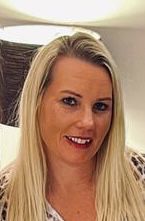
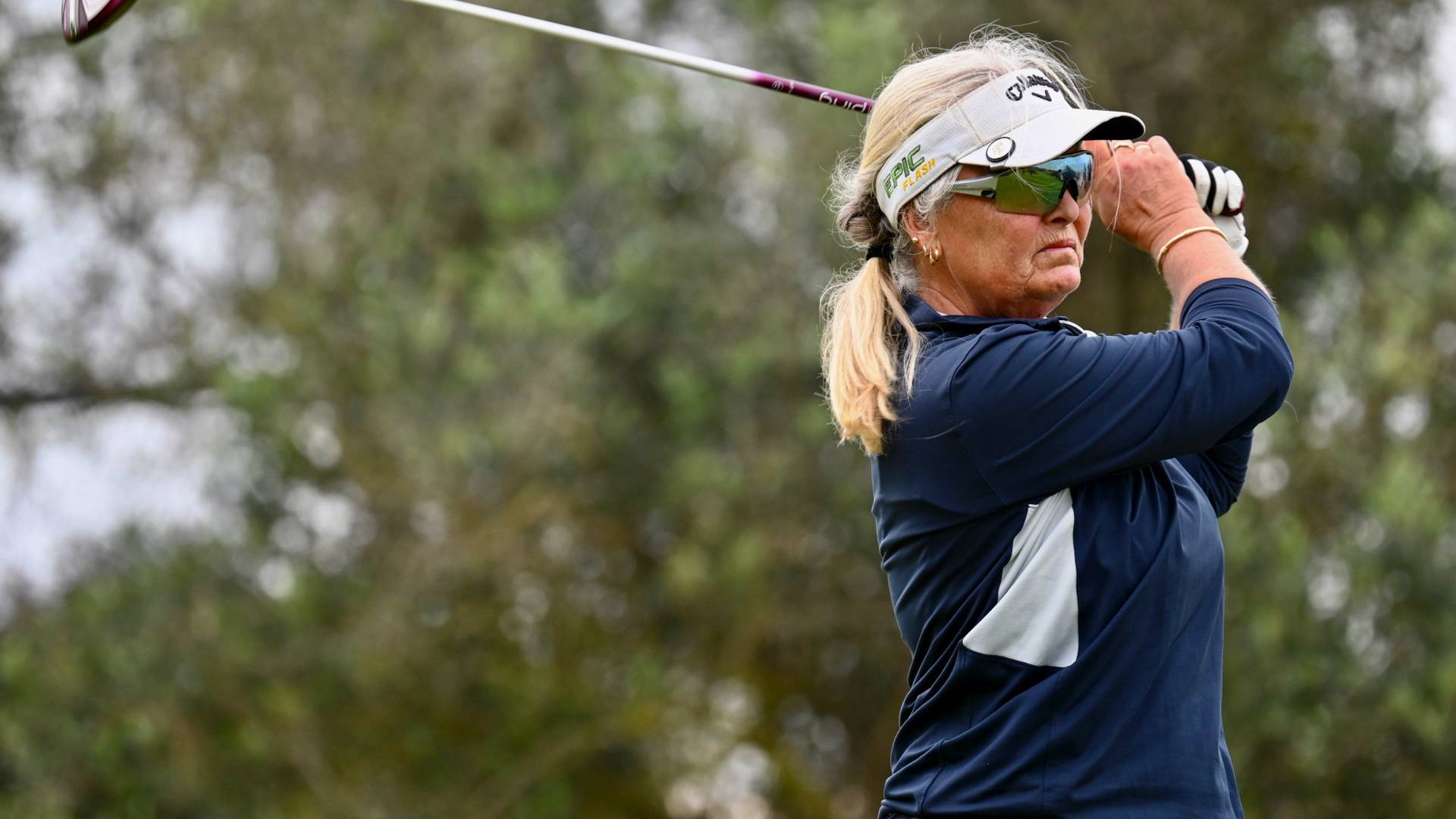
Golf is a tough game at the best of times, but imagine just how difficult it must be for those who are visually impaired, physically disabled or faced with the challenges of a condition such as autism that isn’t necessarily seen by the naked eye.
Thanks to the European Disabled Golf Association (EDGA) golf has brought joy to the lives of many who would otherwise never have tried the sport, yet alone realised that they could compete in it.
Mette Havnaas is one such woman. The Norwegian lost her sight in adulthood yet through golf she has found a passion in life. She hears when she plays a good shot and enjoys the sound when a putt drops to the bottom of the cup.
“I found golf after losing my sight and I love it,” says Mette, who is guided on the course by her husband Birger. “I started open-minded, I didn’t know what I’d think.
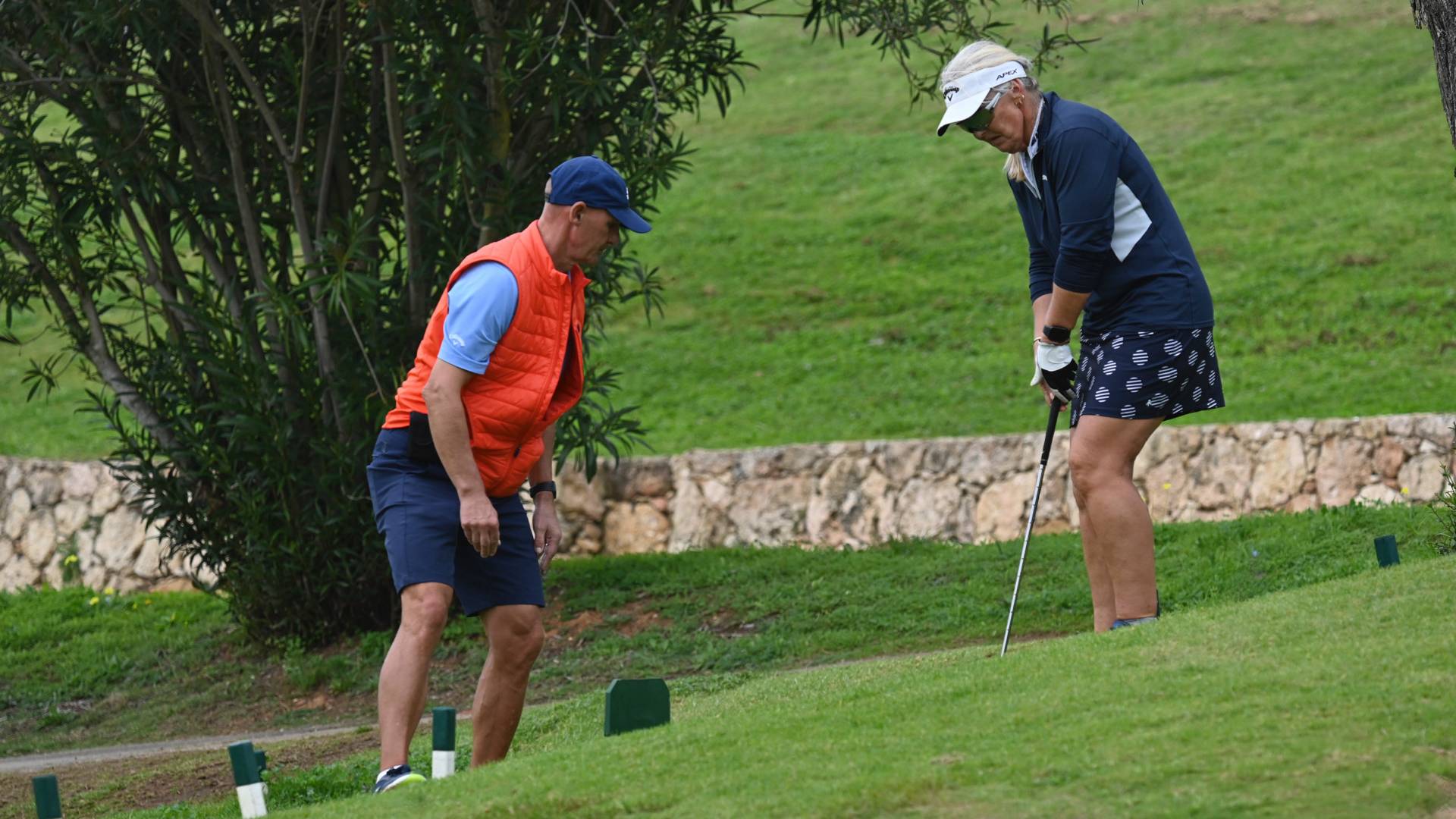
Mette is guided on the course by her husband Birger
But it was a good feeling, and great fun! I am a relatively stubborn person who thinks that anything is possible. I still do the things I did before I went blind – some things now just take a little longer.”
The EDGA has opened doors of opportunity for many through its inclusive approach to the game of golf. From coaching to competition, there’s a full schedule of tournaments and it even has its own tour.
Back in May history was made when the R&A staged their first ever Open for golfers with a disability. Erika Malmberg, who is autistic, was one of the 80 competitors from 17 countries who took part in the DP World Tour co-sanctioned event - the G4D Open.
Subscribe to the Golf Monthly newsletter to stay up to date with all the latest tour news, equipment news, reviews, head-to-heads and buyer’s guides from our team of experienced experts.
"One of the reasons I love golf is there are clear rules for me to follow,” explains the Swede. “I wish I had a set of rules to follow in my everyday life, because I feel I am talking a different language to everyone else."
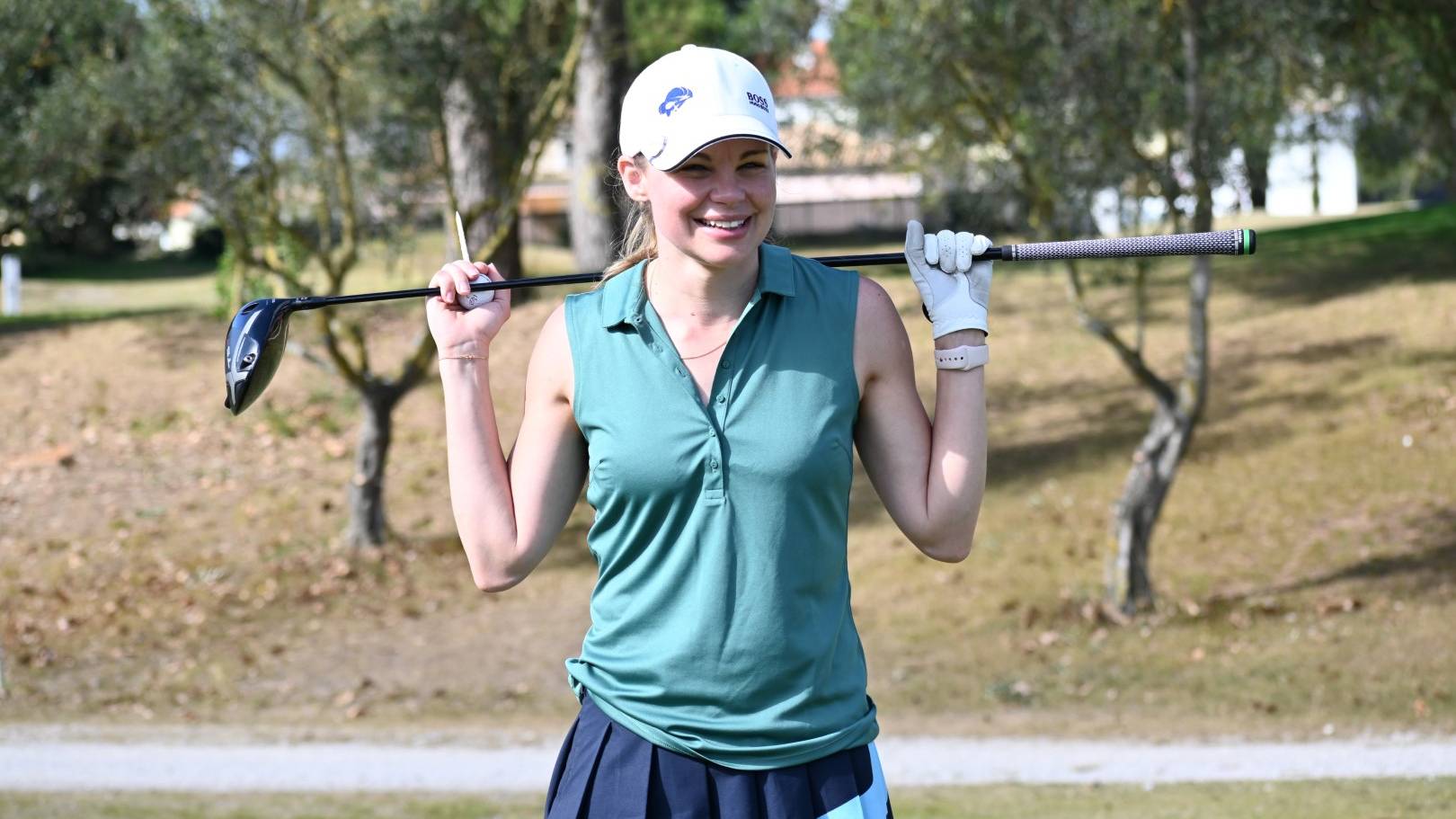
Erika Malmberg
The 38-year-old is keen to spread the word about the opportunities that golf can bring to the lives of those who have an impairment and last year spoke with passion on the subject at a R&A G4D Symposium in front of a room full of delegates from the world’s golfing nations.
Malmberg talked about the acute anxiety she feels on the first tee, worrying about things like her playing partners running late, and how she struggles with high emotion on the golf course, which she describes as like “walking along in the dark with a flashlight pointing at things in a panic.”
She recalls a golf lesson when her coach asked her to try to ‘cut the grass’ with her club at impact. “Even if I could logically understand that he wanted me to hit the ground, my autistic brain interpreted that as ‘hit the grass, leave 1cm of the straw’ and I blamed myself for not asking how high the grass should be after being cut.
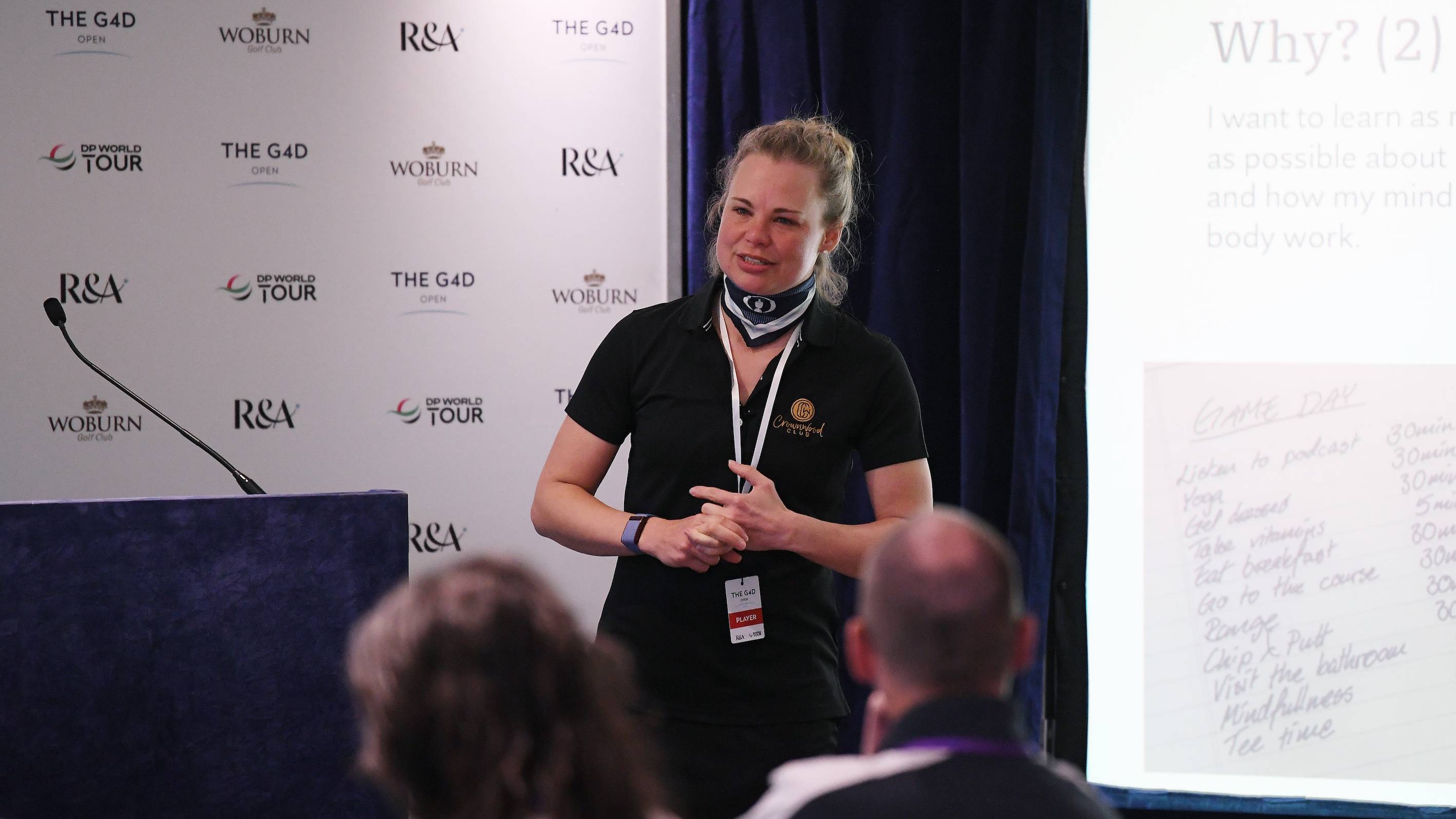
Erika Malmberg spoke at a R&A G4D Symposium about the opportunities that golf can bring to the lives of those who have an impairment
The following week I went away to play in a competition abroad, which in itself brought a high level of stress and anxiety, my autistic brain won over my logical brain and I didn’t manage to hit the ground in one single swing that day. My ball striking got even worse after advice that should have led to a better impact. It’s a perfect example of how information sent isn’t always information received for me.”
Before taking up golf Malmberg had been put onto medication for depression. “When I picked up a golf club a year later I suddenly discovered that I didn’t need my medication any more. Golf was like a miracle medicine for me. I was getting outside more, had more physical training and was able to put my thoughts on better things. By competing in golf I have had to learn about myself, my brain and reactions. I want to get better at golf and keep learning and this journey will also help me grow as a person, a co-worker, a leader and a mum.”
Away from the golf course Malmberg is a high-flyer in the business world, a CEO and co-founder of her own law firm. She says playing golf is “like paradise” for her on a well-rested day, “I’m fully enjoying life.” Yet on a day when she lacks energy she describes the game as “torture.”
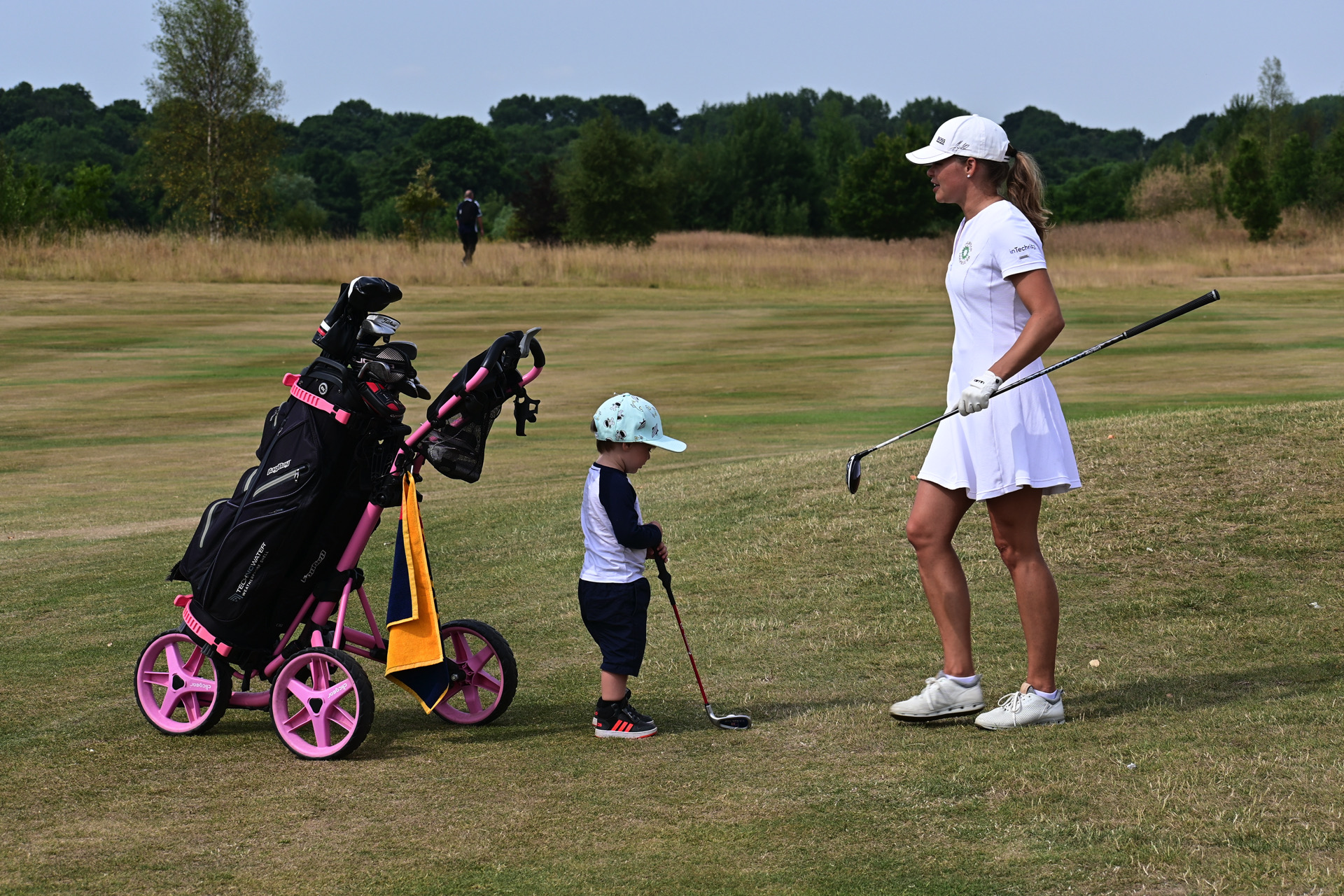
Erika sometimes takes her young son Phillip to EDGA events
It’s an invisible affliction that has haunted Malmberg all her life that started as a child and has affected her relationships both personally and professionally. “The way I see it is my first language is “autistic” and my second language is Swedish, then English. Unfortunately there are not a lot of people who speak autistic.
“In my career, I have had good leaders who made it possible for me to thrive in areas where my personality and knowledge were a benefit. Although for a long time I was unable to make myself understood by most of my superiors, which led to me changing job on a more frequent basis than I wished to. Ultimately, it’s the main reason I am co-founder of the law firm where I am CEO. I choose the co-workers and the customers. We can’t fit all, but for those we do fit, we are the best.”
The beauty of golf, as a sport, is it allows a wide spectrum of participants, from all walks of life, all ages, all abilities. You effectively choose how seriously you want to take the game. Practice on your own terms, play alone or in a group. Choose to be sociable or just polite on the course. Decide if you want to become a scratch player or are happy with your handicap level.
As for what the golfers can do to encourage more disabled participants at their clubs, Malmberg suggests: “Be curious, not judgemental. See the possibility in all golfers. Deal with obstacles at clubs for those who have it hardest.”
She says as individuals we could all benefit from educating ourselves in how to raise serotonin levels in the brain. “It will make disabled golfers feel more welcomed and at ease and therefore easier for them to improve their golf game.” Malmberg insists the thing that gives her the greatest sense of achievement is inspiring others with disabilities to play.
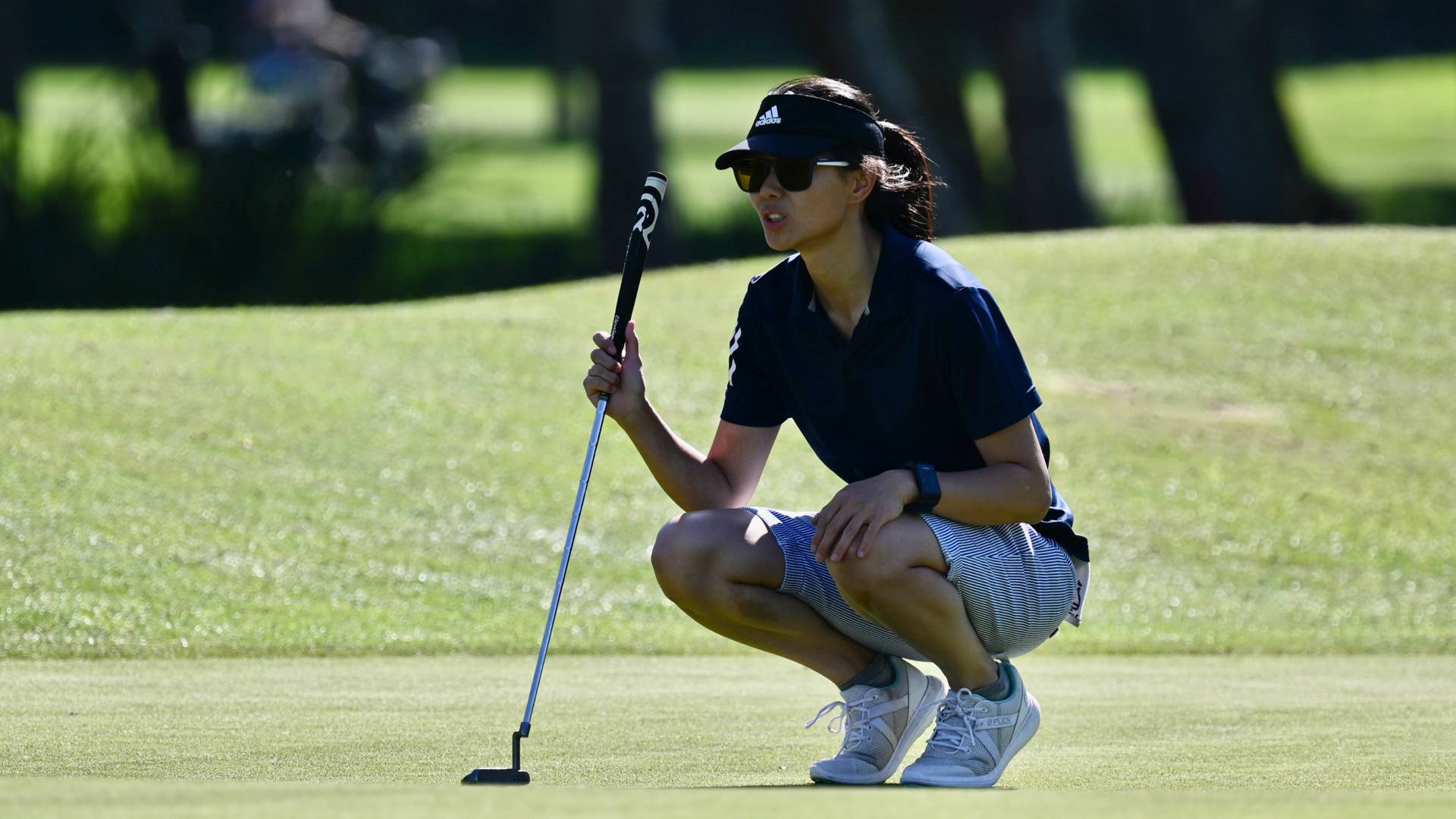
Austism sufferer Michelle Lau
England’s Michelle Lau is one of those players. She saw Malmberg’s posts on Instagram and took up golf. Nevertheless, as a fellow autism sufferer she too has “felt the fear” that hitting the little white ball can bring. She was crying in the toilets before her first EDGA event, such was her anxiety of competing. Meeting the tournament manager and other players calmed her down (along with giving her the task of handing out the sweets on the first tee).
After leaping that hurdle she bravely travelled to the UAE to play in the G4D Tour championship. She played such high quality golf that it resulted in the organisers deciding to give guaranteed spots for female competitors in events. Lau says golf has changed her life dramatically. “With golf, it’s one shot at a time. I’m learning that life is similar – take one step at a time and at my own pace. It’s like nature chess,” she insists.

Michelle Lau in action
Like Malmberg, Lau, who is a member of the Cambridge Country Club, she wants to encourage more young women with autism and ADHD to play the sport. “I love the game,” says the 35-year-old. “Playing golf has so many health benefits and offers us a chance to learn about ourselves.”
EDGA has added an eight-strong women’s category in the RSM season-ending play-offs (now in its fourth year), which takes place from 9-12 September 2024 at North Hants Golf Club. The RSM Play-offs are match play knockout and the idea of the season-ending tournament at North Hants Golf Club is to celebrate players who have excelled in the World Ranking for Golfers with Disability (WR4GD) in an exciting climax.
To follow the fortunes and match results of participants such as Lau and Malmberg visit: edgagolf.com
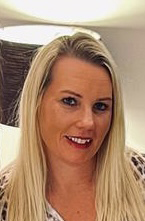
Carly Frost is one of the golf industry’s best-known female writers, having worked for golf magazines for over 20 years. As a consistent three-handicapper who plays competitive club golf at Parkstone and the Isle of Purbeck courses in Dorset every week, Carly is well-versed in what lady golfers love. Her passion for golf and skill at writing combine to give her an unbeatable insight into the ladies game.
Carly’s role at Golf Monthly is to help deliver thorough and accurate ladies equipment reviews, buying advice and comparisons to help you find exactly what you are looking for. So whether it’s the latest driver, set of irons, golf ball, pair of shoes or even an outfit, Carly will help you decide what to buy. Over the years she has been fortunate to play some of the greatest courses in the world, ranking Sea Island, Georgia, USA, among her favourite golf resorts. Carly's aptly-named son Hogan is already hitting the ball as far as mum and will undoubtedly be a name to watch out for in the future.
Carly is a keen competitor and her list of golfing achievements are vast. She is a former winner of the South West of England Ladies Intermediate Championship, a three-time winner of the European Media Masters and she once beat an entire start-sheet of men to the title of Times Corporate World Golf Champion. She has played for both the Dorset and Surrey County Ladies first teams and is known for her excellent track record at matchplay.
Carly holds the ladies course record (68) at her home club Parkstone and her lowest competition round (seven-under-par 65) was carded in the pro-am of the Irish Ladies Open at Killeen Castle, playing alongside Solheim Cup superstar Anna Nordqvist. Although her current handicap index has crept up to 3.7 since Covid she has her sights firmly set on achieving that elusive scratch handicap and hopefully playing for her country when she’s 50.
Carly’s current What's In The Bag?
Driver: Callaway Epic Max, 10.5°
Fairway wood: TaylorMade SIM2, 15°
Hybrids: Titleist TS2, 19°, 21°, 24°
Irons: Mizuno JPX900, 5-PW
Wedges: Cleveland RTX, 52°, 56° and 58°
Putter: Scotty Cameron Futura X5
Ball: 2021 Callaway Ladies SuperSoft